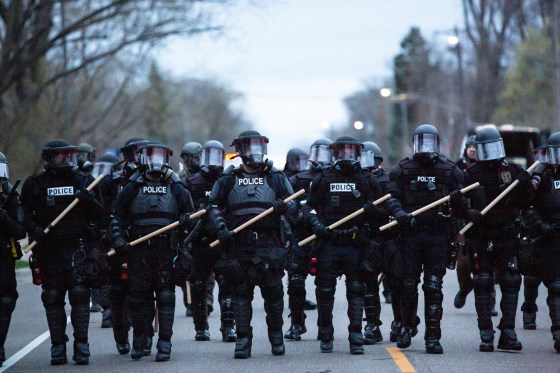WASHINGTON — The fragile negotiations on police reform will continue into July despite repeated pronouncements from Senate negotiators that they were operating with a June deadline, the latest announcement by lawmakers on Thursday as they continue to struggle to find an agreement.
The continuation of talks, according to a statement from the bipartisan group of negotiators, is a sign that lawmakers still think a deal is in reach, but it is also an ominous warning that the two sides might not be able to bridge the gap on critical issues on issues of policing, safety and racial discrimination that have divided the country.
Negotiators, led by Sens. Cory Booker, D-N.J., Tim Scott, R-S.C., and Rep. Karen Bass, D-Calif., had been projecting optimism that a deal on a framework could be reached this week. But the clock ran out. The Senate left for a two-week recess for the Fourth of July, but the remaining challenges have proven too difficult to overcome within the “June or bust” timeline. The group will continue to work from afar.
"After months of working in good faith, we have reached an agreement on a framework addressing the major issues for bipartisan police reform," the three said in a joint statement Thursday evening. "There is still more work to be done on the final bill, and nothing is agreed to until everything is agreed to.
"Over the next few weeks we look forward to continuing our work toward getting a finalized proposal across the finish line," the statement said.
The main sticking points throughout the process has been over qualified immunity, a legal standard that protects police officers from being held personally liable for most of their actions while on duty, and Section 242, the criminal standard to prosecute police officers. The issues have been at the core of demands from activists and progressives who want police to be held accountable.
Despite Republicans saying that criminal standards should not be changed, Democrats proposed the lowering of criminal liability of police officers for four crimes: theft, sexual assault, obstruction of justice and excessive use of force. Republicans balked, opposing the increased criminality, creating a major obstacle to reaching a deal.
“Nothing is agreed to until everything is agreed to,” Bass said this week.
The potential legislation would also address choke and carotid holds, no-knock warrants, national standards for policing, misconduct record keeping and resources for police mental health.
The House passed the George Floyd Justice in Policing Act in March.

